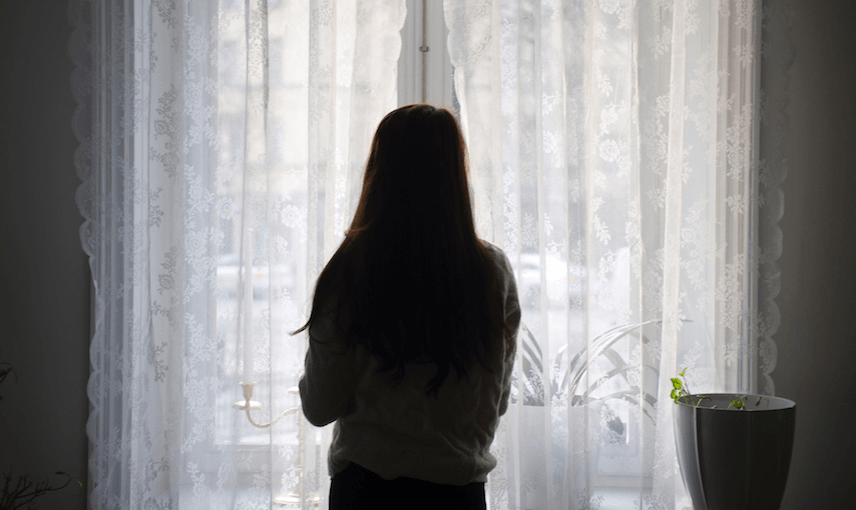As Covid-19 forces New Zealand into lockdown, domestic violence crisis services are preparing for a rise in people needing support. Alex Casey reports.
Domestic violence agencies around the country are scrambling to increase and diversify their crisis services and refuge accommodation as New Zealand prepares to escalate to alert level four on Wednesday night. That level of social isolation, which will see the majority of the country enter a full lockdown aside from essential services, has already proven to increase rates of domestic violence internationally.
“We’ve seen in China that family violence skyrocketed in the provinces hardest hit by Covid-19,” says Holly Carrington, policy advisor for domestic abuse charity Shine. “Based on that, we are expecting an increase in physical violence here.” Reports from the US suggest that Covid-19 has already had an impact on the way people are experiencing domestic violence, and last week the Canadian government announced an extra $50 million for domestic violence and sexual assault services.
Natalie Thorburn, policy advisor for Women’s Refuge, says the organisation is anticipating a “creeping risk” over the coming weeks. “We know from things like natural disasters that there’s a ripple effect on the wider community, and the impacts don’t necessarily show up straight away,” she says. “It takes time for that tension-building phase to become physical aggression, so there will be a delay and the numbers might not change immediately.”
Factors that can exacerbate these numbers include added financial pressures that come from loss of income, the sudden close confinement of families and a narrowing of broader community contact. “It’s important to note that perpetrators don’t just perpetrate violence because of these stresses alone,” says Thorburn. “It’s very much an existing pattern of power and control that has more of an opportunity to manifest in isolation.”
But as the country enters lockdown, the reduction in social contact may result in violence escalating in pre-existing cases. “If you instantly remove other people from the equation, that’s a key social factor which tends to moderate violence a bit,” says Carrington. “It can very quickly get a lot more dangerous because the vulnerable person has nowhere else to go and no time in the day to escape to their work or office.”
“Frankly, we’re worried about the severe physical violence that nobody will have eyes on, because women won’t be interacting with enough people for them to intervene or even notice.”
Both Shine and Women’s Refuge wish to stress that domestic violence isn’t always physical. “It can be a constant undercurrent of insults, put-downs, and being prohibited from making decisions,” says Thorburn. “In a context of self-isolation, these methods of control could draw upon digital and economic means, including monitoring of the victim’s phone or social media, or restricting what the victim can buy, including food and sanitation essentials.”
People experiencing domestic violence in the lockdown period can be assured that crisis services will be available. Both Women’s Refuge and Shine have joined a working group to put in place extra support, which may include motel accommodation and increased remote services. “It will depend on what resourcing is possible,” says Thorburn, “but it’s clear that we need several different pathway options for people not feeling safe enough to stay home.”
If you are worried about someone in your community who might be vulnerable, Thorburn says it is extremely important not to ignore those concerns. “On a really individual level, most people will know someone who is a victim of domestic violence. You might not necessarily use that word, but everybody knows somebody who is in a relationship where there is power and control and they might feel concerned about that person being locked up with them.”
While it is important to make a plan, being mindful of the close proximity that comes with social isolation is vital. “Avoid raising concerns by text or social media messaging unless you’re certain the abusive person does not have access to their phone or other devices,” says Thorburn. “Having a ‘safe word’ that someone can message to you is one way of having a contingency plan that you can be part of if the abuse gets worse for them.”
“Be sure to check in weekly – or daily if you can – to make sure that you can detect any changes, call 0800 REFUGE if you are concerned about somebody, or call the police if you feel like they are in immediate physical danger.”
Women’s Refuge also offers a discrete shielded support site that can be accessed at the bottom of several websites including The Warehouse, Countdown, and below this article. The website will not appear in your browser history, and contains information about how to get help, get out of a situation or make a plan to leave. If you run a website and wish to offer the service to your own audience, you can add the plugin by clicking here.
If you want to offer your support to these services, don’t hesitate to get in touch with your local agency or make a donation online. “Your donations are more important than ever as people find themselves restricted with even less access to their communities and income,” says Thorburn. “They can’t necessarily get all those supplies like the rest of us can, so it is a really good time for people to step up and support those vulnerable communities.”
“We really need to be looking out for each other in these times, and keeping those lines of communication as open as we can. Think of all the ways that your neighbour might need your support – that’s what we all need to be thinking about right now.”


